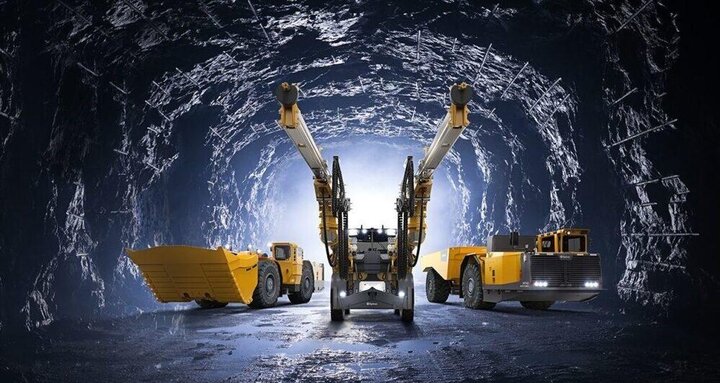Iran (IMNA) - Based on figures given by state mines and metal holding firm IMIDRO, they shipped more than 48.6 million tonnes of goods, increasing 3.4 percent in weight and 7.6 percent in value over the previous year.
Exports totaled $5.7 billion in steel, $1.5 billion in copper, $973.3 billion in aluminum, $626.3 billion in pellet feed, $597 billion in zinc, $453 billion in coal and coke, $343.2 billion in cement, $206.1 billion in sponge iron, $199.7 billion in stones and related products, $111.1 billion in molybdenum, $90 billion in iron concentrate, $81.6 billion in ferrous scrap, and $80.2 billion in lead.
Chrome, antimony, mica, titanium, precious metals, and nickel were also shipped during this time period.
According to IMIDRO, the country imported roughly 4.4 million tonnes of mineral goods worth $4.9 billion to suit the demands of domestic companies.
Iran's extractives industry is relatively undeveloped, but it is developing as a new front in the fight against Western sanctions, owing to the sector's tremendous diversity.
The sector comprises up to 120 elements, ranging from very sensitive radioactive compounds to commonplace ones like lime.
Iran has around 7% of the world's confirmed mineral reserves, which are estimated at 60 billion tonnes and contain 68 different types of minerals. Its mineral reserves are valued at $700 billion at current values, but authorities claim the true number is far greater.
Mehdi Karbasian, a former head of IMIDRO, stated in August 2020 that if Iran's mineral reserves are worth at least $700 billion, their added value would be $4 trillion.
Since we haven't yet reached the mines at greater depths, he said, "today, we only know about mines up to a depth of 100 and 150 meters of land, and we declare our reserves based on that."
Iran is the world's top producer of steel, with officials claiming that shipments continue despite US sanctions. It intends to increase steel output to 55 million tonnes per year by 2025, with 20 to 25 million tonnes designated for export.
US administrations are aware of Iran's industrial sector's crucial importance in the country's economy. The building, manufacturing, textile, mining, aluminum, copper, iron, and steel industries of Iran have all been the focus of sanctions from Washington.
According to Hassan Abbaszadeh, head of strategy and development at the National Petrochemical Company (NPC), Iran exported 28 million tonnes of petrochemical products worth $16 billion last year.
Last year, petrochemical production totaled 70 million tonnes. He told reporters on the sidelines of the 14th international Iran Petrochemical Forum (IPF) in Tehran that it is expected to reach 80 million tonnes this year.
Iran's vast petrochemical industry is another target for sanctions evasion. Officials claim that the sector is illegal because to the large variety of petrochemical goods and the high international demand for them due to their high quality and low cost.


Your Comment